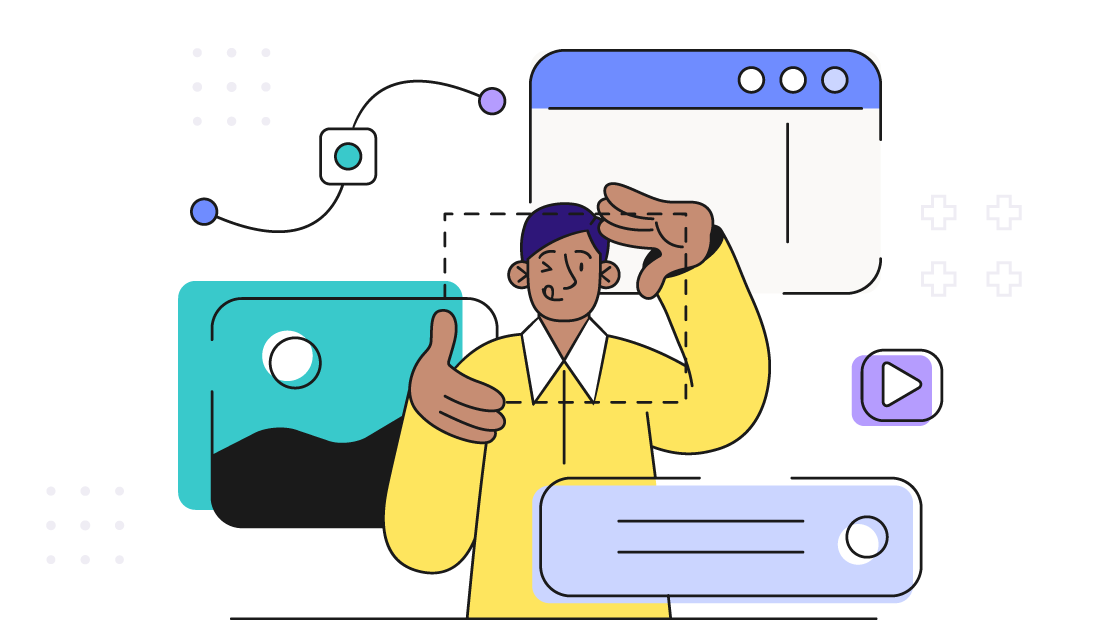



Google Ads is a great way to target the right audience and drive traffic to your website. It should be an essential component of any SaaS marketing strategy. But for many healthcare tech companies, the platform's ad restrictions can be frustrating and sometimes mind-boggling.
If you had a campaign that suddenly stopped getting impressions and clicks, you're not alone. The good news is that it's not a complete mystery either: You can navigate these healthcare marketing problems by understanding Google's restrictions on healthcare digital advertising.
 Brian Cauble, partner and the head of SEM/SEO strategy at the Spot On Agency, shares his first-hand experience navigating Google ad restrictions for display ads, his latest insights into how they impact campaigns, and what you can do proactively to prevent these issues.
Brian Cauble, partner and the head of SEM/SEO strategy at the Spot On Agency, shares his first-hand experience navigating Google ad restrictions for display ads, his latest insights into how they impact campaigns, and what you can do proactively to prevent these issues.
Google Ads has various restrictions, but those around privacy and protected health information (PHI) impact the healthcare industry the most. For instance, brands can't use PHI to inform healthcare remarketing campaigns.
Also, Google is very concerned about protecting users' PHI, and for good reasons — with increasingly stringent privacy laws like HIPAA, misusing PHI could get the company into legal hot waters. As such, it has dialed up its privacy controls to protect users' health data from inadvertently being shown on ads that can compromise their privacy.
The biggest problem for healthcare SaaS companies is that Google throws everything related to healthcare into the same bucket and implements broad restrictions, sometimes lumping consumer and B2B marketing together. Then, it uses artificial intelligence (AI) to identify terms that suggest an ad may be promoting healthcare-related products or services and blocks it.
"Unfortunately, the AI isn't very smart, and it often catches ads that promote healthcare software intended for clinicians and providers. The net is way too wide. It blocks healthcare software-related ads, even though they're not targeting patients at all," says Cauble. "After an ad is blocked, you must jump through hoops to get it approved."
Though Cauble has implemented multiple healthcare software advertising campaigns without incident, occasionally the restrictions cause problems, and sometimes in the middle of a successful campaign. Even for a seasoned digital advertiser, it can be wildly hard to predict when complications will occur. "I've had campaigns that got no impressions from the start. I've seen some going from thousands of impressions daily to a few dozen. The first time that happened to my campaigns, it took me a long time and many calls to support to figure it out. But when you've seen it as much as we do, you can recognize the issue immediately," says Cauble.
Google updates its restrictions frequently. You may have run a campaign for a long time without any issues, and suddenly, it stops working. Cauble has found that if you drill down into their policies, you will find that the "health in personal advertising" clause has caused the problem.
"I started seeing these healthcare marketing problems about two years ago. Google's AI picks up a term, determines that it may risk a user's PHI, and shuts down the campaign. You don't get any notifications — you just look at the analytics and realize that the campaign has stopped working, and you are left to figure out why without guidance or clear notifications," says Cauble.
It's best to work with someone who has experience running ads in this space. They can check your work and ensure you have set up the campaign correctly. Also, track your analytics and look for messages that indicate potential issues. You can appeal those messages but prepare to “lose your case” a few times before you can escalate the problem.
"The appeal process often takes a week or two. Get familiar with contacting support and be persistent," says Cauble, "You'll be making a lot of calls. You'll have to work up the chain of command until you find someone who understands the issue."
While the whole process can be frustrating, it’s worth the effort. If your appeal is successful, Google will flag your account so that the problem doesn't happen again. "The process can be a hassle. The benefit of working with a healthcare ad agency like Spot On is that we have seen it all. We have the confidence to look at the metrics, identify what's going on, and call support immediately to straighten things out," says Cauble.
Google's AI casts a wide net and looks for all health-related words, like medical, healthcare, and drug names. It'd rather have advertisers appeal to get an ad approved than risk having something slip through and violate privacy laws from various states and countries. It has also dialed back what advertisers can track to identify a user online.
You can refine the target keywords and ad copy to prevent your ads from getting blocked. For example, be explicit that you're advertising technology for healthcare providers. Google's AI also analyzes display ad images. It's more likely to block an ad with photos of patients and doctors. As such, it's best to use images related to software and technology.
"Consider how your words can be construed. Are they too generic? Can you add the word software to make it more explicit? Make the copy as obvious as possible for the AI program. But also strike a balance so a human audience can understand who the product is for and what it's about," says Cauble.
Privacy laws will become stricter as consumers are more protective of their personal data. As we move toward a “cookie-less world,” advertisers will face challenges with targeting strategies that rely on third-party data.
"You must have a holistic digital marketing strategy that doesn't solely depend on ads. It's important to collect first-party data and implement consent management to stay compliant," says Cauble.
High-quality content is the foundation of such permission-based marketing. It can help you gain your audience's trust so that they'll share their information. B2B buyers want to get informed — when you obtain their consent, you can use their data to market to them.
Ready to develop a holistic digital marketing strategy and leverage content marketing to support your healthcare advertising campaigns?
Our team at Spot On helps healthcare software and SaaS companies develop and audit their content strategy to ensure it supports their marketing campaigns. We understand how to navigate and overcome the limitations of Google’s ad restrictions to resonate with your target audience while staying in compliance with guidelines, saving you valuable time for other business initiatives. Schedule a time to chat to see how we can help you design a plan that drives conversions.


Rebecca Graves co-founded Spot On in 2012. As a partner and leader of client services, she takes immense pride in being in charge of “client happiness.” The role allows her to wield her problem-solving skills while fostering big-picture perspectives and team building. Rebecca’s more than 35 years of experience have equipped her to translate strategic planning expertise for the advancement of tech companies transforming the healthcare, financial, and legal industries.
Get the latest and greatest posts sent straight to your inbox.


